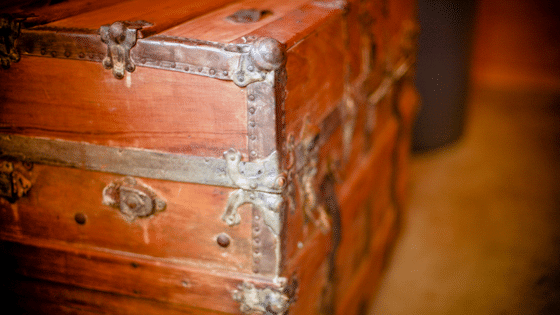Where is your trust? Treasure or truth?
It’s a common story. A person starts a new venture or business. In the early days, the struggle is real, and it’s hard. The trial is marked with uncertainty, much prayer and a building trust. But at some point, there’s a breakthrough. Perhaps it is imperceptible but the struggle is lessened. Or so it seems.
And with the success, there’s excess, and with the excess, there becomes indulgence into toys—the trappings of having arrived. Maybe it’s a fancy car, a boat or a second home. The toys are easier to come by when the treasury—the storehouse is stocked. Life is not so hard when there’s money in the bank.
Such was the story of King Asa. He rose to the kingship in a period of upheaval. His grandfather, Rehoboam, lead the kingdom to civil war and the split of the nation. His father, Abijah, was a wicked king by all accounts.
So when Asa reaches the throne, much of his early reign was to bring stability. Asa was a good king. He wanted to do what was right and likely those early days were hard as he sought to correct the wrongs of the past. Worse still, in the 10th year of his reign, Asa is confronted by a nearby king who seeks his destruction. In despair and desperation, Asa pleads to God:
And Asa cried to the Lord his God, “O Lord, there is none like you to help, between the mighty and the weak. Help us, O Lord our God, for we rely on you, and in your name we have come against this multitude. O Lord, you are our God; let not man prevail against you.” II Chronicles 14.11
God answers Asa’s plea and order is restored. In a newfound fervor, he institutes reforms. While the text is silent, it is easy to guess that in the coming years, the newfound peace leads to prosperity. Without the threat of war, production surges and the treasuries become stocked. And perhaps, with a little imagination, it’s not a stretch to believe that Asa began to accumulate his own toys.
Sadly, in the 36th year of his reign, Asa is once again confronted by war. This time it’s Baasha, King of Israel. But unlike in former times, Asa does not appeal to God. Instead, he turns to his stocked treasury and uses it to hire the king of Syria to join his opposition.
He trusted in his treasury more than God.
Sadly, it seems that Asa never recovered. The Bible records that just three years later that Asa suffered a disease in his feet “and his disease became severe. Yet even in his disease he did not seek the Lord, but sought help from physicians.” II Chronicles 16.12
The lesson of Asa? It is so easy and so subtle to move from that place of dependence upon God. Asa’s early appeal speaks volumes—“there is none like you.” While Asa is noted as one of the good kings of Judah, it’s likely that even in all his reforms and good deeds, he lost sight of the Deliverer and placed his trust in the security of gold and silver coins.
O Lord, let us learn the lesson of Asa. Our hearts desire your righteousness and truth. May you continue to fan afresh a zeal and dependence upon you. We pray that even in success that our trust will never be in our toys or our treasury. Let us always be prepared for battle and the desire to lift up your name.
Share this Post
Published August 10, 2018
Topics: A Life of Faith

